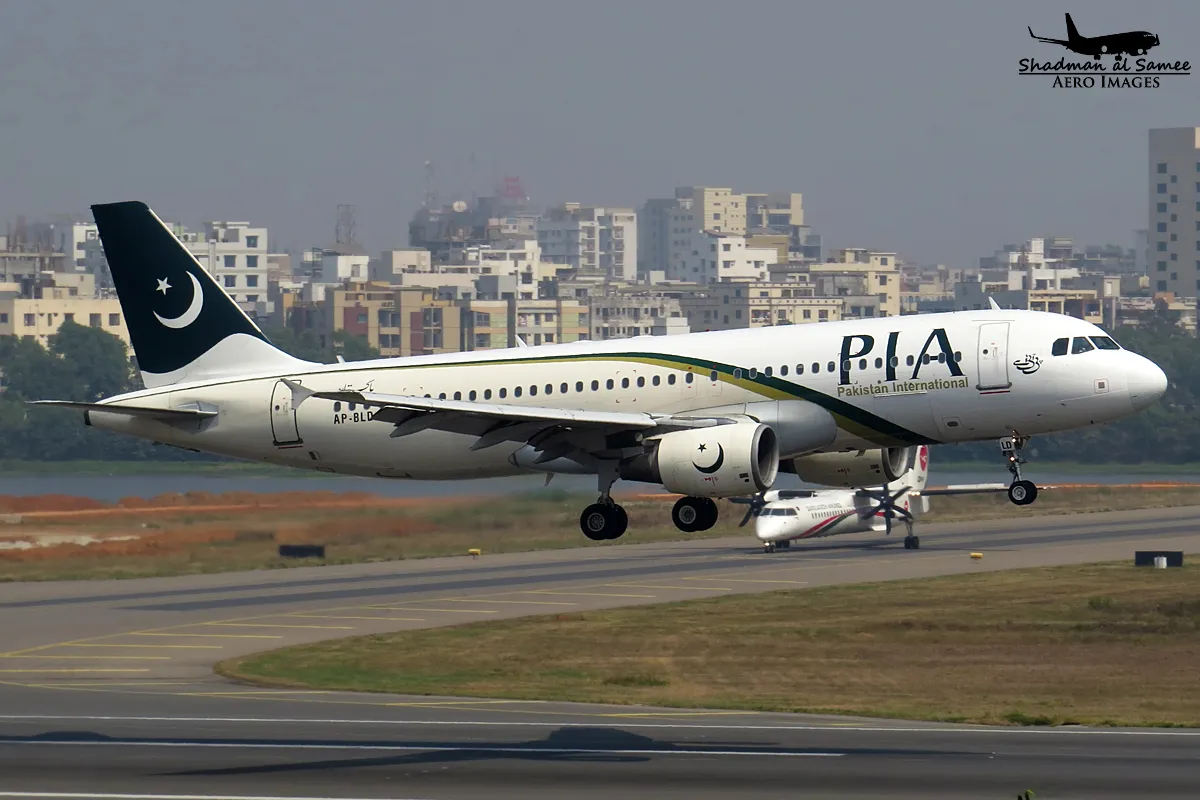
PIA sacks 150 pilots over fake licenses
Jun 30, 2020

Pakistan International Airlines has dismissed 150 pilots for holding fraudulent licenses, a decision that comes in the wake of a government investigation revealing widespread irregularities in pilot certification. This action aims to restore public confidence and enhance safety standards within the airline industry. The dismissal follows a broader crackdown on aviation safety in Pakistan, initiated after a 2020 plane crash that raised concerns about regulatory oversight. The airline is now focused on ensuring that its remaining pilots possess valid credentials, as it seeks to improve its reputation and operational integrity in a highly competitive market.
Pakistan International Airlines (PIA) has recently made headlines by sacking 150 pilots due to the revelation of fake licenses. This significant move has raised concerns about aviation safety and regulatory compliance in Pakistan's airline industry. Let’s explore the implications of this decision, the background of the issue, and how it impacts the airline’s operations and reputation.
The Background of the Fake License Scandal
The scandal emerged in June 2020 when the then Federal Minister for Aviation, Ghulam Sarwar Khan, disclosed that a large number of pilots in Pakistan were operating with dubious licenses. This shocking announcement led to an investigation by the Civil Aviation Authority (CAA) of Pakistan, which ultimately confirmed the existence of numerous fraudulent licenses within the aviation sector.
PIA's Response to the Scandal
In response to the findings, PIA took decisive action by terminating the employment of 150 pilots. This move is part of a broader effort to restore confidence among passengers and stakeholders while ensuring compliance with international aviation standards. PIA's management emphasized that the safety of its passengers remains the top priority.
Impact on PIA Operations
The dismissal of 150 pilots poses significant challenges for PIA’s operations. The airline is already struggling with financial difficulties, and losing such a large number of pilots further complicates the issue. Here’s a brief overview of the operational impact:
| Aspect | Impact |
|---|---|
| Pilot Shortage | Increased strain on remaining pilots, leading to potential flight cancellations. |
| Flight Schedules | Disruption in planned flight operations, affecting passenger trust. |
| Financial Costs | Additional recruitment and training costs for new pilots. |
PIA's Reputation at Stake
With the termination of 150 pilots over fake licenses, PIA's reputation has taken a considerable hit. Passengers are more likely to question the integrity of the airline, which can lead to a decline in customer loyalty and potentially affect ticket sales. The airline must now work hard to rebuild its image.
Steps for Rebuilding Trust
To restore confidence among passengers and stakeholders, PIA has to take several proactive measures:
- Transparency: Communicate openly about the steps being taken to rectify the situation, including how the airline plans to ensure that all pilots have valid licenses.
- Training and Development: Invest in training programs to prepare new pilots and ensure they meet international standards.
- Collaboration with Authorities: Work closely with the CAA to enhance regulatory compliance and oversight.
- Public Relations Campaign: Launch campaigns to inform the public about the measures taken to improve safety and rebuild trust.
The Future of PIA
The future of PIA hinges on its ability to navigate through this crisis effectively. With a commitment to safety and compliance, the airline can potentially emerge stronger from this setback. However, it must act swiftly and decisively to ensure that such incidents do not occur in the future.
Conclusion
The sacking of 150 pilots over fake licenses is a wake-up call for PIA and the entire aviation sector in Pakistan. While the immediate implications are significant, there is an opportunity for PIA to address these issues head-on and establish itself as a reliable airline. By focusing on safety, transparency, and customer trust, PIA can work towards a more sustainable future, ensuring that the safety of its passengers remains uncompromised.
In conclusion, as PIA navigates through this tumultuous period, stakeholders will be watching closely to see how the airline adapts and evolves. The road ahead may be challenging, but with the right strategies in place, PIA can work towards rebuilding its reputation and ensuring a bright future for its operations.
Related Articles

Explore Thailand: The Best Islands to Visit for Paradise, Adventure, and Relaxation

The Ultimate Guide to the Best Islands in Thailand for Your Next Getaway

Do babies need passports? How to get a passport for a newborn

How to get a U.S. passport fast: here’s how to expedite the process

What is Mobile Passport Control: 5 reasons why you should use it

SENTRI vs. Global Entry: A detailed guide

Do you need a passport to go to the Bahamas? Let’s find out

Do you need a passport to go to Mexico? A detailed guide

Do you need a passport to go to Canada? We got the answer

Do You Need a Passport for a Cruise: An Essential Travel Guide

Booster Seat Requirements: All the Rules to Follow in Your Rental Car

What Are the World’s Most Powerful Passports, and How Does Yours Rank?

How to Take a Passport Photo at Home: A Helpful Guide

You've got to have heart! Southwest's new livery

Your opinion: Should water be free on low cost carriers?

Young women bolder than guys as solo travellers
